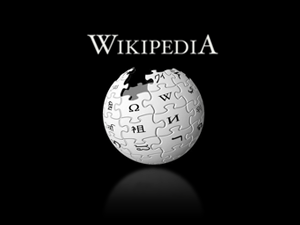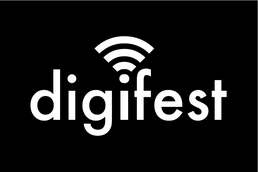The great Wikipedia controversy
By Mira Vogel, on 11 August 2014
 You’ve been warned about Wikipedia.
You’ve been warned about Wikipedia.
You’ve used it before but it would be pointless to cite it – anybody can edit so how can it be a credible source? Searching Google yields better sources for your work. You’ve never tried to edit Wikipedia – why would you?
Comparing Wikipedia to Google’s search engine as sources of information, danah boyd sets out the differences. Google runs on private algorithms designed by a few software engineers. Though these algorithms are agnostic about the veracity or quality of the sites they reference, they are readily manipulable through search engine optimisation. Google’s commercial model has driven increased personalisation in these algorithms which in turn promotes social network homophily, an encompassing network of like-mindedness also known as the filter bubble. As Tarleton Gillespie argues, “That we are now turning to algorithms to identify what we need to know is as momentous as having relied on credentialed experts, the scientific method, common sense, or the word of God.”
In contrast, boyd explains, Wikipedia is produced through transparent protocols negotiated by its community of volunteer editors. Entries are debated in public on their respective Talk pages, sometimes passionately, towards resolving what is “legitimate, notable and of high quality”. The History page for each entry reveals who edited, when, and how often. Editors are encouraged to provide reasons, allowing biases to be identified. Where editors introduce false or inadequate information, Wikipedia has a transparent and systematic approach to address this. As such, boyd argues, while Wikipedia may or may not be better than expert-vetted content, it makes a contribution beyond the “product of knowledge; it’s also a record of the process by which people share and demonstrate knowledge” and “a site for reflection on the production of knowledge”.
Wikipedia co-founder Jimmy Wales wonders why any student would rely on Wikipedia for their essay – “For God sake, you’re in college; don’t cite the encyclopedia”. Producing Wikipedia entries, though, that’s different. This is where digifest comes in. Digifest is a community-organised festival of technological stuff planned for early November with the aim of bringing UCL’s digital literacies agenda to life.
The following proposal for digifest – just a sketch at this stage – focuses on contested Wikipedia entries, to which it brings a number of questions. What is the nature of argument in different disciplines? What can scholarship contribute in a controversy? What is a scholarly way to comport oneself when weighing into a controversy which has turned belligerent? How are these things to be boiled down into a Wikipedia article?
To explore these, we propose an edit-a-thon. An edit-a-thon is an in-person events, over a finite period (usually a day or less), bringing interested people together to edit Wikipedia on a particular theme. Historically these have tended to focus on content. Perhaps they are addressing gaps on Wikipedia – Women in Science and Art + Feminism, for example. However, by focusing on a number of contested entries, and with facilitation, students and staff together could participate in editing, discussion and reflection on the process of negotiating an encyclopaedia entry. Suitable entries might be those which involve hoaxes, alternative medicine, the paranormal, feminism, racism, climate change, contested territories, and religious beliefs. Participants would bring the Wikipedia principles into their editing and discussion activity, and reflect on their own standpoint and modus operandi.
There are plenty of resources available for planning an edit-a-thon including the expertise shared by Wikimedia education organisers like Toni Sant (University of Hull) and Sarah Stierch (Smithsonian). In addition this one would require suitable entries or subjects to be identified, steady and experienced facilitation around sensitive topics, and a programme of activities including editing, use of Wikipedia’s Talk page, and in-person reflection. A further possibility is for teaching teams to incorporate these activities into assessment on an academic course – again, there are well-documented precedents.
Get in touch
Would you like to be part of this? Or do you have other ideas for bringing Wikipedia into digifest?
Contact Mira Vogel in E-Learning Environments, or @TrabiMechanic.
Video HT: @mattjenner
9 Responses to “The great Wikipedia controversy”
- 1
-
2
markannand wrote on 11 August 2014:
RT @UCL_ELE: The great Wikipedia controversy: You’ve been warned about Wikipedia… http://t.co/SX7hFRTXto
-
3
URelearning wrote on 11 August 2014:
RT @UCL_ELE: The great Wikipedia controversy: You’ve been warned about Wikipedia… http://t.co/SX7hFRTXto
-
4
TrabiMechanic wrote on 11 August 2014:
Heavily influenced by @zephoria / @danahboyd – this on the great Wikipedia controversy: http://t.co/a3qUg2ajNK
-
5
TrabiMechanic wrote on 11 August 2014:
The great Wikipedia controversy | UCL E-Learning Environments team blog http://t.co/KAaJldH4wR
-
6
UCL_ELE wrote on 12 August 2014:
Would you like to be involved in a Wikipedia edit-a-thon for UCL’s digifest? Something like http://t.co/rhvFQgjOkX @UCLdigifest
-
7
vrfreedman wrote on 12 August 2014:
RT @UCL_ELE: The great Wikipedia controversy: You’ve been warned about Wikipedia… http://t.co/SX7hFRTXto
-
8
UCLHJSLibrary wrote on 12 August 2014:
RT @UCL_ELE: The great Wikipedia controversy: You’ve been warned about Wikipedia… http://t.co/SX7hFRTXto
-
9
TrabiMechanic wrote on 12 August 2014:
Ta @patlockley @StevieBenton @chriskeating along lines of – http://t.co/1ymvB6Fpv8 if of interest. Otherwise, along other lines…
 Close
Close



The great @Wikipedia controversy – a post on the @UCL_ELE blog @UCLdigifest http://t.co/4rkFCph9Ih